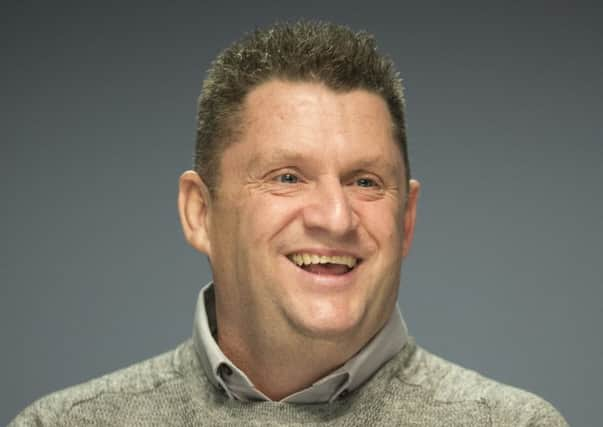'˜NHS treated me like a piece of dirt when I asked for treatment'


Colin McCurdy joined the Army when he was 18-years-old and served for 18 years all around Northern Ireland – most of it in Belfast – with the UDR and later the Royal Irish.
He went to his GP who referred him on for treatment within the NHS.
Advertisement
Hide AdAdvertisement
Hide Ad“I had the worst experience ever,” he said. “I was treated like an absolute piece of dirt.”
When he went for help, Colin said a psychiatric nurse told him: “If you hadn’t been in the British Army then you wouldn’t have been involved in any incidents. Everybody has been affected by the Troubles here you know.”
Suicidal thoughts came strongly after that. He went home to his parents but they watched him closely for a few days. They knew he had previously tried to take his life.
He was cleaning out his wallet and a card with Combat Stress’s number fell out.
Advertisement
Hide AdAdvertisement
Hide Ad“If I hadn’t made the phone call to Combat Stress I would not be sitting where I am today,” he said.
The Belfast Trust responded that it strives to treat all patients with respect and dignity and that it issued “an unreserved apology for the distress this incident caused Mr McCurdy and his family”.
He was later assessed by Combat Stress in-house professionals in 2016 and diagnosed with severe PTSD and depression.
Advertisement
Hide AdAdvertisement
Hide AdThe shooting of an individual he knew in 2015 had a huge impact on him.
“I felt I was hit by the Dublin train. That just knocked me back for six and that is when things started spiralling out of control.”
The symptoms were anxiety, broken sleep, anger, nightmares, flashbacks and hyper vigilance.
He then attended a six-week intensive treatment programme in a Combat Stress centre in England.
Advertisement
Hide AdAdvertisement
Hide AdThe course taught him what PTSD is and “skills and drills” to cope with it.
“It just manifests itself later in life when you do realise what you have come through, what you have seen, where you have been, what you have done, incidents that you have been involved in,” he said.
In one incident in 1997 a booby trap device seriously injured his boss and a policeman. He helped do first aid and saved his boss’s life.
He has been involved in other shootings and bombings and other “close calls”.
Advertisement
Hide AdAdvertisement
Hide Ad“You are constantly living in fear too when you are off duty because you are never switched off, carrying a personal weapon 24/7 when you are out with your kids. So even in so-called off time, you were never off duty as such.
“But then obviously when you get into civvy street and you are in and out of jobs and you can’t settle in any job then you know something is definitely wrong.”
In June he began a new job with Combat Stress in Northern Ireland as a peer support facilitator, helping veterans meet together in a relaxed and positive environment to support each other.
“It is a real success story for me, my family and my kids and everybody around me that has helped me on this journey.”
Colin now estimates that he is 80-90% better.
Advertisement
Hide AdAdvertisement
Hide AdMany veterans are afraid to come forward because they are afraid of their security being compromised or of a negative reaction, he said.
“And then there is a big thing with veterans [which] is the stigma attached to mental health. Being a soldier or a squaddie you are supposed to be a big rough, tough soldier and you are like ‘there is nothing wrong with me’ ... but make the call to Combat Stress and you are not going to be judged.”
He knows “a few hundred veterans” in Northern Ireland and more than 10-20 he knows with mental health issues “won’t make the phone call because of the stigma”.
But Colin is emphatic that they should come forward.
“Definitely make the phone call because we are here, we are a service, we are a charity for veterans and if I am an example of – you can come out of a dark hole – there is light at the end of the tunnel. The staff here are more than willing to help anyone that makes that call.”